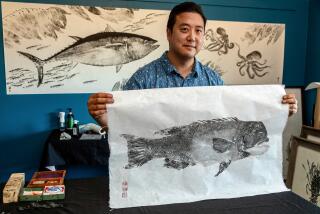S. Korea Scientist Charged With Fraud
- Share via
SEOUL — South Korean prosecutors announced today that they had charged scientist Hwang Woo-suk with embezzlement and fraud, saying he misused public funds for his fabricated experiments in human cloning.
The indictment seals the downfall of a charismatic scientist once revered as a hero and now despised as a charlatan.
In a nationally televised news conference, prosecutors said Hwang and an aide fabricated the data in two landmark papers published in 2004 and 2005 in which he claimed to have cloned stem cells from specific patients.
“The patient-specific stem cells did not exist,” senior prosecutor Lee In-kyu said. “Hwang asked his team to fabricate various data, including photos, the number of stem cells created and DNA test results.”
The prosecutors also indicted five junior scientists who worked with the 53-year-old Hwang.
Prosecutors had not taken any of the scientists into custody, and it was not clear when they might do so. A conviction of misuse of state funds can carry a prison term of 10 years.
Once celebrated on magazine covers around the world, Hwang used to boast to colleagues that when he walked into a restaurant in Seoul, he was mobbed like he was “the Korean Elvis.”
Until his downfall, the government and private donors poured money into his laboratories at the veterinary school of Seoul National University. In February, the government reported that he had received more than $30 million in government funds, about $3 million of which he could not account for.
Hwang, who was fired in March, still has die-hard supporters, many of whom have been protesting on campus.
A Buddhist monk announced Monday that followers had raised $65 million for Hwang to continue his research.
Hwang’s lawyers have not said whether he would accept the money. One lawyer said Hwang would fight the charges, which the attorney called unfair.
Hwang has spent most of the last five months in a monastery.
Jinna Park of The Times’ Seoul Bureau contributed to this report.
More to Read
Sign up for Essential California
The most important California stories and recommendations in your inbox every morning.
You may occasionally receive promotional content from the Los Angeles Times.













